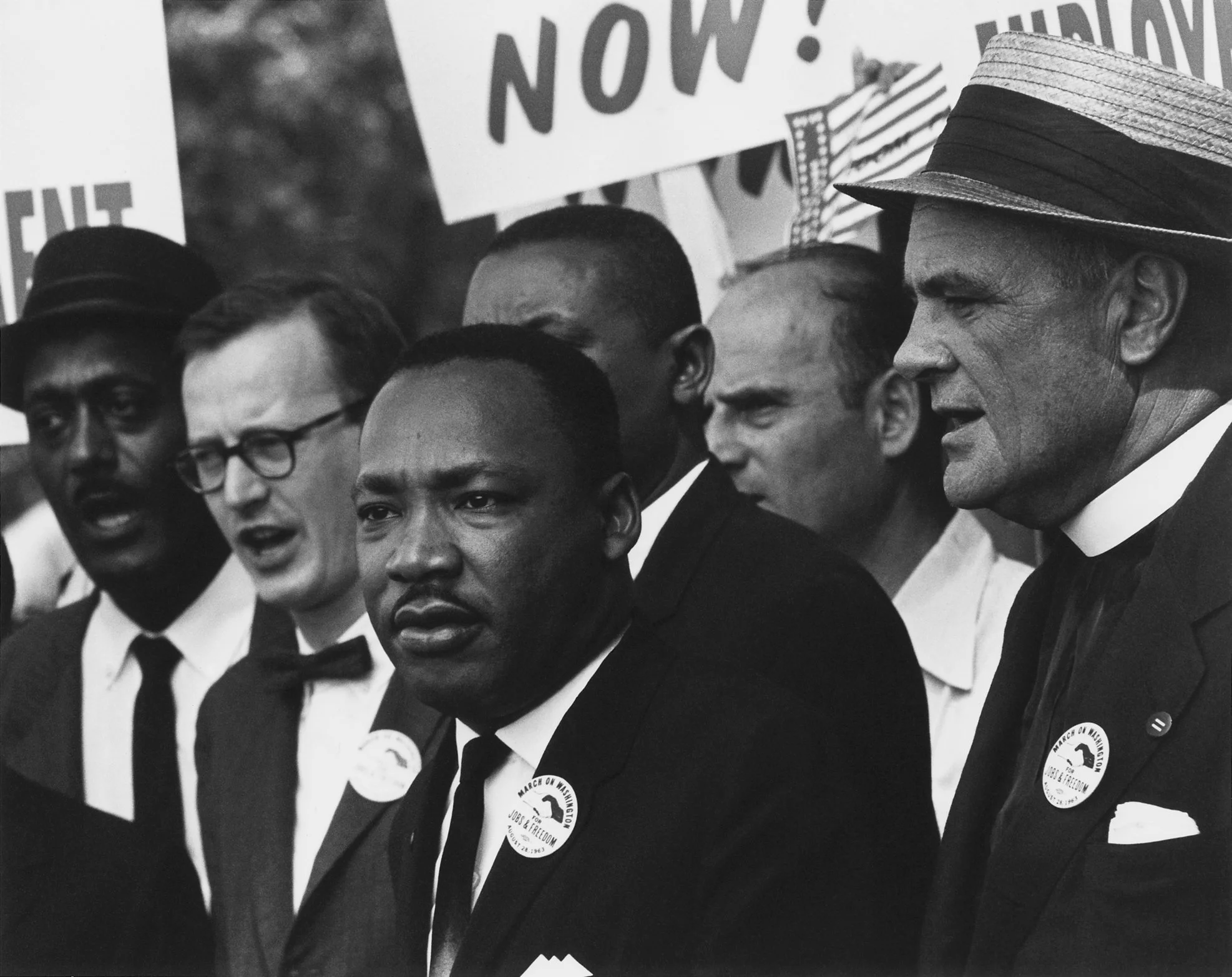RETRO REPORT: A History and Opinion on Voting Rights
Photo via Rowland Scherman/U.S. Information Agency. Press and Publications Service/Public Domain
Ava Jelepis, a Freshman studying Journalism and Political Science, argues that the path to being able to vote is something that should not be lost on Americans.
As we approach the Nov. 5 presidential election, many have already decided who they are voting for. Some may have already cast their vote. However, I’ve encountered many people, both young and old, who are considering not voting due to their disdain for both candidates. It's easy to dismiss the act of voting, and at times, it may seem like our individual votes don't carry much weight. But I assure you, each and every vote is crucial in the election. By not exercising your right to vote, you undermine the determination and strength of those who fought for our right to vote, a privilege we often take for granted.
In 1789, our nation's history was forever altered when the Constitution was officially enacted after being created and ratified. At this time, specific voting rights were not established in the Constitution, leaving each state with the power to regulate who could vote. As a result, voting was primarily limited to 21-year-old or older white male landowners, but starting in the 1820s, it was extended to all white males 21 or older, regardless of property status.
The Civil Rights Act of 1866 extended citizenship to all persons born in the United States, irrespective of their race or color, with the exception of Indigenous people. Two years later, in 1868, the 14th Amendment was added to the Constitution, reinforcing the Civil Rights Act by granting citizenship to all persons born or naturalized in the United States, including formerly enslaved people. However, it wasn't until 1870 that the 15th Amendment was added to the Constitution, granting Black men the right to vote.
For women, the journey toward voting rights was nearly 100 years greater before being granted the right to vote. The women's suffrage movement began in 1848 with the first Woman's Rights Convention in Seneca Falls, New York. Wyoming became the first state to allow women to vote in 1869, and Louisa Ann Swain was the first woman to vote in a general election. A handful of other states gave women the right to vote before, finally, in 1920, the 19th Amendment gave women across the nation the same right.
Slowly, the right to vote was extended to more races throughout the 20th century. In 1924, the Indian Citizenship Act extended the right to vote and citizenship to Native Americans, who were formerly not considered United States citizens. In 1943, the Magnuson Act repealed the Chinese Exclusion Act and gave Chinese immigrants citizenship and the right to vote. Nine years later, all Asian Americans were granted those same rights with the Immigration and Nationality Act of 1952.
The Voting Rights Act was passed in 1965, prohibiting racial discrimination practices in voting. Despite this, many Latinos, as well as others who fit the category of being a “language minority,” were still kept from voting until the act was extended in 1975. The act was expanded again in 1982 to accommodate voters with disabilities and in 1993 to allow voter registration at DMVs.
Voting rights have continued to evolve in the 21st century. In 2013, the Supreme Court's ruling in Shelby County v. Holder declared Section 4 of the Voting Rights Act unconstitutional. This decision removed the requirement for states to seek federal approval for changes to voting policies, leading to the implementation of new restrictive voting laws that the court previously blocked. Minorities still face voter suppression to this day, in part due to this decision.
Voting rights have changed drastically over the last 235 years. The 26th Amendment lowered the voting age from 21 to 18 in 1971. It's weird to think that just 53 years ago, so many young voters, including myself, wouldn't be able to vote in the upcoming election. Our nation's history tells the story of the struggles that Americans before us went through to be able to give us these rights that we can take for granted. By doing our part to vote this election season, we ensure that these struggles and years of fighting were not for nothing. As the first female president and CEO of PBS, Pat Mitchell, said, “If we don't vote, we are ignoring history and giving away the future.”
Please note that these views and opinions do not reflect those of The New Political.

